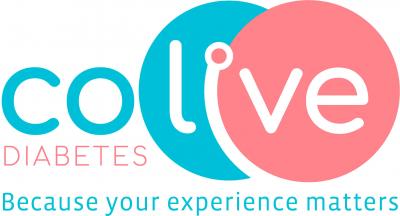
Credit: LIH
Until now, medical doctors have used biomarkers to determine the health status of people with diabetes (PWDs). These markers measure the blood glucose level or glycated haemoglobin. As such, they cannot predict exactly how the disease will progress over months, let alone years. “We want to change that,” says DrGuy Fagherazzi, Research Leader of the Digital Epidemiology and E-health hub at LIH’s Department of Population Health: “We want to find digital markers that will allow an individual, long-term prognosis for PWDs.”
The core element of the project is a specially developed smartphone app. In this app, named CoLive, study volunteers record information regarding their lifestyle or their physical and mental wellbeing. This includes geolocation data, social media usage, selfies or voice recordings. The scientists plan to identify signatures in the volunteers’ voices – so-called vocal markers. These are associated with emotions and psychological factors such as fear, anger, stress, anxiety levels or even an episode of hypoglycaemia.
For generating the digital twins, the researchers will use an infrastructure called the Digital Health Data Lake – where a large pool of health-related innovative digital data types such as speech and pictures will be collected for research purposes. The CoLive team wants to combine these data with the data collected using the CoLive app. Dr Fagherazzi explains: “Collecting all this digital data will help us to better characterise and understand, in real life, how psychological factors impact, for instance, the glycaemic variability, the risk of having hypoglycaemia or future diabetes-related complications. It will also help to give advice to healthcare professionals on how to better detect and treat psychological factors and mental health in PWDs.”
To implement this, the scientists aim to develop a special tool for the smartphones of PWDs. This tool will give an alert if it detects a potential risk and provide suggestions on how people can optimally manage their diabetes. “These digital tools and just-in-time interventions will help PWDs to optimise their daily diabetes management when they need it,” says Prof Laetitia Huiart, Director of LIH’s Department of Population Health. She also expresses her delight at the start of CoLive Diabetes: “Luxembourg will gain even more visibility in health research through this international project. CoLive Diabetes provides the opportunity to use the potential of real digital data and AI to significantly improve PWDs’ quality of life. In CoLive Diabetes, we are investigating what really matters to those who live with diabetes.”
Information for potential volunteers
PWDs are the most connected group of chronic patients and the most active in self-monitoring their disease: The LIH researchers and their colleagues anticipate 50,000 volunteers with type 1 and type 2 diabetes will participate worldwide in CoLive Diabetes. Digital analyses assisted by AI offer a chance to gain genuinely new insights, especially for the large volumes of data required from such a huge number of volunteers. For the CoLive team, privacy is a top priority of the study: all data are treated in such a way that they cannot be traced back to an individual person.
CoLive Diabetes is an open and participatory research project. The volunteers, nicknamed “CoLivers”, will be involved at the different stages of the research, such as the conception of the smartphone app, the validation of existing research questions and the identification of new innovative research questions relevant to their day-to-day diabetes management. The CoLivers will even have the opportunity to lead research projects based on CoLive data along with professional researchers.
###
More information on CoLive Diabetes: http://www.
Media Contact
Juliette Pertuy
[email protected]
352-269-70893




